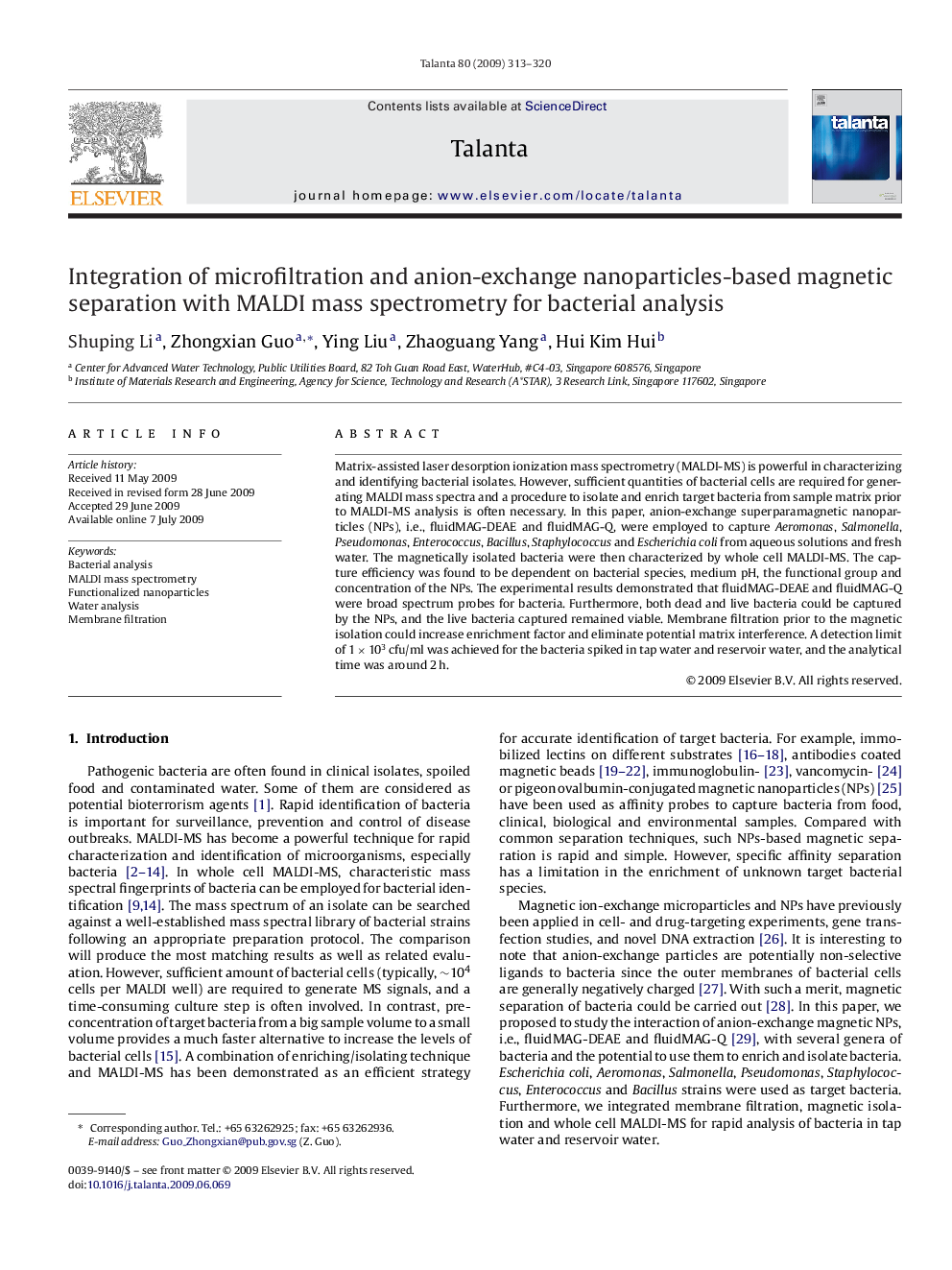| Article ID | Journal | Published Year | Pages | File Type |
|---|---|---|---|---|
| 1243683 | Talanta | 2009 | 8 Pages |
Matrix-assisted laser desorption ionization mass spectrometry (MALDI-MS) is powerful in characterizing and identifying bacterial isolates. However, sufficient quantities of bacterial cells are required for generating MALDI mass spectra and a procedure to isolate and enrich target bacteria from sample matrix prior to MALDI-MS analysis is often necessary. In this paper, anion-exchange superparamagnetic nanoparticles (NPs), i.e., fluidMAG-DEAE and fluidMAG-Q, were employed to capture Aeromonas, Salmonella, Pseudomonas, Enterococcus, Bacillus, Staphylococcus and Escherichia coli from aqueous solutions and fresh water. The magnetically isolated bacteria were then characterized by whole cell MALDI-MS. The capture efficiency was found to be dependent on bacterial species, medium pH, the functional group and concentration of the NPs. The experimental results demonstrated that fluidMAG-DEAE and fluidMAG-Q were broad spectrum probes for bacteria. Furthermore, both dead and live bacteria could be captured by the NPs, and the live bacteria captured remained viable. Membrane filtration prior to the magnetic isolation could increase enrichment factor and eliminate potential matrix interference. A detection limit of 1 × 103 cfu/ml was achieved for the bacteria spiked in tap water and reservoir water, and the analytical time was around 2 h.
